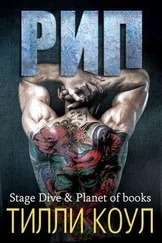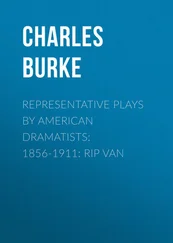The Arab leader was barking orders as more gunfire came from the beach. Suddenly the men in the compound started shooting – one of the assault force must have put his head over the top of the dunes. The firing was disciplined; these guys are well-trained, thought Dave as he watched the men around him taking up cover positions, behind the big tables in the middle of the compound where they ate their food, and behind empty oil barrels and chairs. They would not be easy to dislodge, heavily armed and well-positioned as they were.
But suddenly two of the Arabs fell to the ground, hit. Others followed. Their leader turned round and began firing back – towards Khalid’s house at the rear of the compound – and now Dave understood.
The firing and the grenades from the beach had been a diversionary tactic, designed to lure the pirates towards the dunes. As had the appearance of some brave soldier on them, intent on drawing enemy fire. But the main rescue force was firing at the terrorists from behind. They must have landed from that helicopter in scrubland, a mile or so away from the camp, and made their way silently overland on foot.
Pinned down, the Arabs fought tenaciously, but the assault from behind had caught them by surprise – within minutes most of them lay dead or wounded. Only the tall Arab, their leader, was still unharmed. Swivelling a round wooden table on to its side, he used its top as a shield, and from a kneeling position continued to fire towards Khalid’s house.
On the far side of the open sandy square a British soldier appeared, climbing over the low compound wall. He was checking the dead nearest him, his attention focused on the Arabs lying on the ground, making sure none was still capable of firing. He was so intent on the task that he didn’t see the leader, hidden by the table, who had turned towards him, ready to fire. Watching this with horror, Dave knew he had to act, but what could he do, locked in this pen? The next instant, as the tall Arab stood up to aim and fire, Dave shouted at the top of his voice, ‘ Incoming! ’
The soldier turned and jumped behind the low compound wall just as the Arab fired, and fired again, in vain. Then another soldier seemed to come out of nowhere, not ten feet from the pen. Standing directly in front of Dave, he shot the leader dead with a burst of automatic-weapon fire.
Turning to the pen, the soldier said nonchalantly, ‘All right, mate?’
‘We’re OK.’ Only then did Dave realise how frantically his heart was pounding.
‘Good thing you called out or Tony over there would have had it. Cheers!’
For the second time in twenty-four hours, Dave had saved someone’s life merely by raising his voice. Maybe I should audition for RADA, he thought. It’s got to be safer than this.
Peggy had stayed in cobra all day with a small group from Thames House, working closely with the intelligence analysts from the other departments as they put together as much information as they could find to help the SAS plan their rescue mission. From time to time Liz had rung in for an update, and at six o’clock in the evening she had joined the substantial group of people from various departments who’d assembled to hear the SAS’s presentation to the Foreign Secretary of their operational plan for the rescue attempt the following morning.
In the pre-dawn darkness, Liz again climbed the few steps from Whitehall to the door of the Cabinet Office, to wait for news to come in of the progress of the operation. By the time she reached the windowless briefing room, reports had started to arrive of a fire fight at the camp; a little later she heard with relief that Dave Armstrong and Captain Guthrie had been successfully rescued. She was still there several hours later when medical reports came in that Guthrie was suffering from what appeared to be pneumonia and that Dave had been beaten badly but was not seriously injured.
Shortly afterwards, as she was watching a shaky hand-held video of the rescue on one of the screens, Peggy waved her over. A call had come in for her from Martin Seurat’s office in Paris. Liz took the phone, expecting to hear Martin congratulating her on Dave’s rescue, but it was one of his colleagues telling her that M. Seurat had gone over to the Santé prison with a colleague from the DCRI. Amir Khan had told his warders that he was prepared to talk.
Much later, after Liz was back at home, exhaustedly downing a glass of Sauvignon in celebration of Dave’s rescue, Martin himself rang. ‘I have heard that your colleague is free. Congratulations.’
‘Thank you. It’s a great relief,’ Liz said. Enough had gone wrong in the operation for her to feel that they were very fortunate things had turned out as well as they had.
‘It’s not the only reason I am calling. I hope you got my message that I went to see our friend in the Santé with Cassale. He says he’s willing to talk some more, but he’s scared – he knows there are Al Qaeda prisoners in there who would not hesitate to kill him if they thought he was talking to us. He wants reassurances about his safety before he gives out any more information.’
‘Can you or Cassale give those to him?’
‘I could try, but there’s a problem. He wants reassurances from you too. And in person – I’m afraid he was insistent on this point.’
So, this morning, Liz had dragged herself out of bed to catch an early Eurostar. It was clear when she arrived at the prison that something fairly dramatic had occurred to change the French attitude to Amir. She had been surprised to be told that the interview was not to take place in the high-security wing. She had instead been shown into a small, comfortably furnished office, where she settled into an armchair, with a cup of coffee to wait for Amir Khan.
The door opened and Amir walked in, followed by Martin. The armed guard had gone, as had the chains that had bound Amir’s arms and legs. Now he walked upright instead of shuffling, his head no longer bowed. Looking straight at Liz, he nodded and said ‘Good morning’ with a slight smile, then sat down on the chair that Martin indicated.
Martin said formally to Liz, ‘I have had a long talk with Amir and he says that he wants to tell us his story. There are some reassurances he is asking for that only the British can give, so I thought it best that you come in person to hear what he has to say.’
Amir looked at her and nodded. ‘I want to tell you what happened because I want you to stop it happening to anyone else. If I do this, then I want to see my sister so I can explain things to her. But you must guarantee she’ll be safe if she comes to see me here.’
Liz said nothing while she thought about this. What Amir was asking for was perfectly reasonable from his point of view, but it was not something she could immediately agree to. It would take a lot of sorting out. Liz couldn’t give him any reassurances about his own position, since it hadn’t been decided yet what if any charges he should face, or in which country he would face them: France or England.
Tahira, moreover, was now effectively a recruited agent and vital to the investigation. If she were suddenly brought over here, she would have to be pulled out of the operation, which would mean they’d lose their one means of contact with Malik. And what’s more, as Amir himself understood, just bringing her to the prison to talk to him might put her in serious danger. This would need careful thinking about.
Amir was watching her closely; Liz could see from his face that if she said the wrong thing he was going to refuse to speak. She had to take a risk.
She said, ‘Amir, I’m very glad that you have decided to help us. We also want to stop others getting involved in all this. I’m going to explain what I can do to meet your terms. First, about Tahira. I’ve met her and talked to her.’ Amir looked surprised, but Liz went on, ‘She is terribly worried about you. She wanted to come and see you but your father wouldn’t let her.’
Читать дальше












